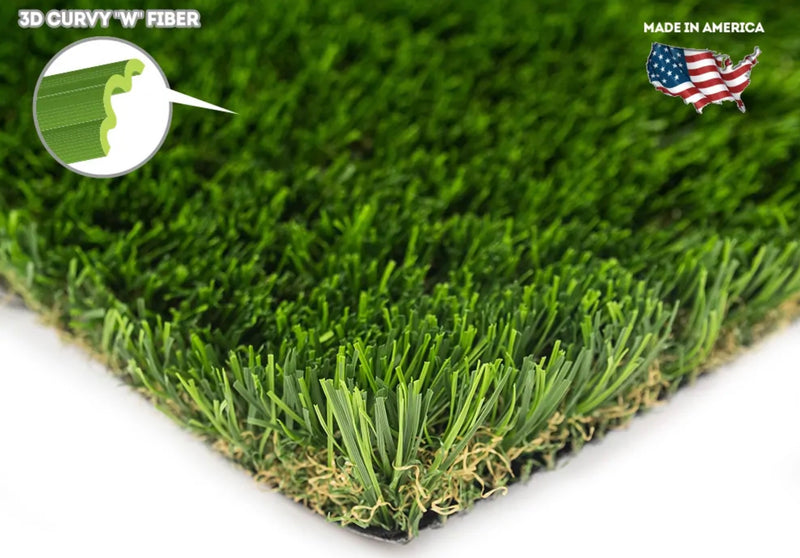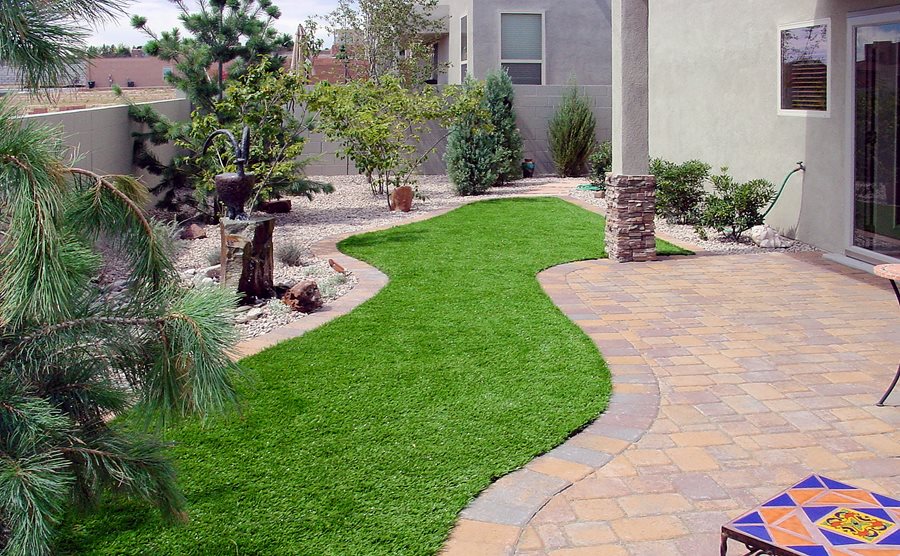Look Into the Environmental Conveniences of Opting for Synthetic Grass Solutions
The fostering of synthetic lawn options offers an engaging chance to deal with pressing ecological obstacles. By dramatically minimizing water use and reducing the application of dangerous chemicals, these alternatives not only promote sustainable landscaping but also safeguard neighborhood environments.
Water Conservation Benefits
One of the most considerable advantages of man-made turf is its capability to save water. Typical turf yards require considerable watering, specifically in areas susceptible to drought or water limitations. In contrast, artificial lawn does not require watering, significantly reducing the overall demand for water resources. This function is particularly useful in arid regions where water shortage is a pressing issue.
By eliminating the demand for regular watering, synthetic grass adds to sustainable landscape practices and aids minimize the ecological impact of too much water intake. Additionally, the conservation of water includes the reduction of drainage, which can lead to dirt disintegration and waterway air pollution.
Furthermore, the installation of synthetic grass permits house owners and municipalities to allocate water resources more efficiently, concentrating on crucial uses such as drinking water and farming. The shift in the direction of synthetic grass not just promotes accountable water usage yet likewise aligns with wider ecological objectives intended at protecting all-natural sources.
As areas progressively prioritize sustainability, the water conservation advantages of synthetic grass provide an engaging instance for its fostering in commercial and residential landscaping tasks.
Decreased Chemical Usage
The change to synthetic grass significantly decreases the reliance on chemical treatments frequently utilized in natural lawn upkeep. Standard lawn monitoring usually entails the application of fertilizers, herbicides, and pesticides to advertise growth and control insects. These chemicals can position threats to human wellness, regional wild animals, and the atmosphere, adding to dirt and water contamination.
In comparison, synthetic turf removes the requirement for these damaging materials. By decreasing the launch of artificial compounds right into the ecosystem, fabricated lawn advertises much healthier soil and water systems.
Additionally, the lack of chemical drainage related to fabricated lawn installations assists shield regional waterways from pollution, supporting water life and maintaining biodiversity. Arizona artificial turf. As communities significantly prioritize lasting methods, choosing synthetic grass offers a sensible option that straightens with ecological preservation objectives. With this shift, residential or commercial property proprietors can take pleasure in lush environment-friendly areas without jeopardizing eco-friendly health and wellness, leading the means for a more sustainable future
Reduced Carbon Footprint

Moreover, the setup of synthetic grass can cause substantial water conservation. All-natural grass call for substantial amounts of water for irrigation, which not just contributes to the carbon footprint associated with water extraction and therapy however additionally stress regional water sources. In contrast, artificial grass needs marginal upkeep, needing no watering, therefore considerably minimizing water usage and its connected power expenses.
In addition, the longevity of synthetic grass adds to its decreased carbon effect. With a life expectancy of approximately 15 years or more, the need for frequent substitutes is reduced, leading to much less waste and reduced power consumption in production and dealing with standard turf choices. In general, synthetic grass presents a sustainable option for ecologically conscious landscape design.
Habitat Conservation
Environment preservation is a vital factor to consider in the dispute over landscape design selections, specifically when comparing synthetic lawn to natural grass. Natural turf yards usually need extensive upkeep, consisting of making use of pesticides, herbicides, and fertilizers, which can negatively affect local communities. These chemicals can seep right into the dirt and waterways, harming native plants and fauna and interrupting neighborhood habitats.
On the other hand, artificial grass offers a possibility to lower the ecological impact of landscaping. By choosing artificial turf, house owners can lessen the interruption of all-natural environments connected with traditional lawn treatment practices. Synthetic grass removes the demand for damaging chemicals, consequently shielding neighboring wild animals and preserving the honesty of bordering ecosystems. The setup of artificial grass can lead to the conversion of previous turf locations right into more biodiverse landscapes, such as pollinator yards or native plant areas, which can sustain local wild animals.
Eventually, the change to synthetic grass not just conserves water and minimizes upkeep initiatives but also cultivates a much more harmonious relationship in between human activities and the native environment, promoting environment conservation in the process.
Long-Term Sustainability
Long-lasting sustainability is an essential element in reviewing the advantages of fabricated turf over typical yard yards. Among the most substantial advantages of synthetic turf is its durability; it can last approximately 15-20 years with marginal maintenance, whereas natural turf calls for regular reseeding and substitute. This long life minimizes the requirement for continuous sources, such as water, plant foods, and pesticides, which are vital for keeping a healthy turf yard.
In addition, fabricated grass adds to a reduction in click here now carbon exhausts linked with lawn care devices. Conventional yards often call for gas-powered lawn mowers, leaners, and blowers, all of which contribute to air contamination. Turf installation phoenix az. In comparison, synthetic grass gets rid of click resources the demand for such tools, promoting a cleaner environment
In addition, the production of synthetic grass significantly makes use of recycled products, improving its sustainability profile. As producers adopt green practices, the environmental impact of synthetic grass remains to lessen.

Conclusion
The fostering of artificial grass services provides substantial ecological benefits, consisting of considerable water preservation, minimized dependence on hazardous chemicals, and a reduced carbon footprint. Artificial turf aids in maintaining all-natural habitats by reducing land disturbance and advertising long-term sustainability through the usage of long lasting materials. Jointly, these variables underscore the capacity of artificial grass to add favorably to ecological wellness and provide a sensible alternative to standard landscape design techniques in an increasingly resource-conscious globe.
In contrast, fabricated turf does not require watering, significantly minimizing the total need for water resources. By decreasing the launch of synthetic compounds into the ecological community, synthetic lawn promotes much healthier dirt and water systems.
In addition, the installment of man-made turf can result in substantial water conservation. In comparison, artificial turf requires marginal upkeep, requiring no watering, therefore significantly minimizing water see it here usage and its linked power prices.
